Forging Cyber Frontiers
UVA Engineering welcomes first cohort in novel graduate program for future cyber-physical systems leaders
Last fall, the first cohort of students arrived on Grounds for the University of Virginia School of Engineering’s novel graduate program in cyber-physical systems. The National Science Foundation-funded Research Traineeship program in cyber-physical systems is the first of its kind in the country, developed by UVA Engineering faculty who conduct research and education in the school’s LINK LAB.
The program, which includes fellowships for Ph.D. students and a proposal for a new master’s degree, is expected to become the national model for graduate level cyber-physical systems education. Link Lab faculty received the $3 Million National Science Foundation grant in 2018.
JOHN A. STANKOVIC, BP America Professor of computer science and director of the Link Lab, has been a leading voice for redesigning traditional curriculum to prepare engineers and computer scientists for the onslaught of technologies at the intersection of the physical and cyber worlds. He is the principal investigator on the grant.
“Brand new ideas and teaching methods are needed, because today’s engineering research requires a multidisciplinary approach and an understanding of how to address social impacts,” said Stankovic. “The Link Lab is a physical space that allows us to demonstrate to our students how cyber-physical systems research is being done in the 21st Century.”
The cohort is immersed in the Link Lab's 17,000-square-foot cyber-physical systems research incubator where close to 40 faculty and more than 200 graduate researchers are collaborating toward discoveries in smart cities, smart and connected health and autonomous systems.
Curriculum includes public policy, ethics and other social sciences, touching on the need to understand human-computer interactions, societal impacts and human-in-the loop aspects of cyber technologies. Professional development too is woven into the educational track.
Stankovic addressed the inaugural cohort as “pioneers” in his orientation presentation. “Cyber-physical systems represent a whole new way of engineering and requires a whole new way of educating future engineers,” he told them.
The program’s first cohort includes 27 graduate students from six UVA Engineering degree programs. Among those are nine National Science Foundation Ph.D. fellowship recipients.
Some of the research fellows shared why they chose UVA Engineering’s National Science Foundation Research Traineeship program:
Angelica Sunga
Computer Engineering

Tell us about your educational career thus far.
I received a B.S. in electrical engineering from Virginia Commonwealth University in 2019. A year prior to graduation, I was a research assistant through the Virginia Microelectronics Consortium Summer Scholar Program in UVA Engineering’s Integrated Electromagnetics Circuits and Systems Lab. Being part of such a great team, especially when the research was challenging, convinced me to enter graduate school. I am now pursuing a Ph.D. in computer engineering at UVA.
What attracted you to the UVA Engineering National Science Foundation Research Traineeship program?
Cyber-physical systems are a very new area of science integrating several disciplines. Because new systems raise ethics, standards and safety questions, there is a need for experts who can speak to these topics. I discovered that a diverse team of professors created the National Science Foundation Research Traineeship program curriculum. Through this diversity of perspectives, the curriculum equips students not only to create cyber-physical systems, but to answer critical questions about them. The program encourages us, as engineers, to expand our interests and perspectives.
Link Lab research areas are autonomous systems, smart and connected health and smart cities. What area of cyber-physical systems is of greatest interest to you?
Cyber-physical systems are often safety-critical systems that require reliable operation and design decisions to prevent hazardous behavior. I do research on safety analysis methods, which intersects with all of Link Lab’s research areas.
What aspect of the program do you think will be most valuable to you in your future research and career?
The diversity of my cohort and the professors involved in the program are particularly valuable.
Milena Milich
Mechanical and Aerospace Engineering
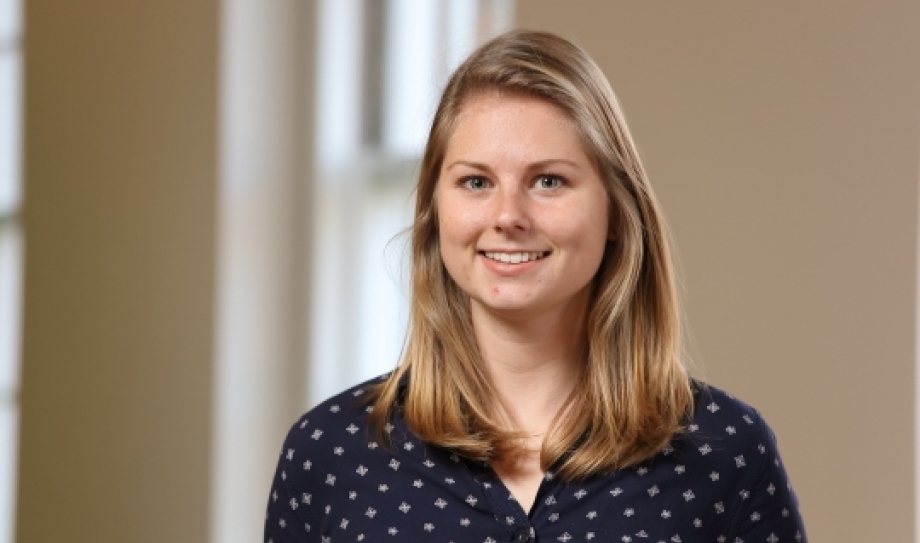
Tell us about your educational career thus far.
I received my undergraduate degree from California Polytechnic State University in San Luis Obispo with a B.S. in mechanical engineering and mathematics. I am now pursuing a Ph.D. in mechanical and aerospace engineering at UVA.
What attracted you to the UVA Engineering National Science Foundation Research Traineeship program?
The appeal of UVA over other programs was the focus on cyber-physical systems combined with interdisciplinary research. I wanted to collaborate with researchers from different educational backgrounds because I also have a degree in math. Many other mechanical and aerospace programs are siloed in their approach to research and do not offer cross-collaboration.
Link Lab research areas are autonomous systems, smart and connected health and smart cities. What area of cyber physical systems is of greatest interest to you?
I am interested in research in the area of autonomous systems. I am focusing on model-based safety analysis.
What aspect of the program do you think will be most valuable to you in your future research and career?
I think the focus on professional development is extremely valuable, especially in technical communications. Undergraduate programs do not address this and being able to communicate about your research is critical to overall success.
Natalie Lerma
Civil Engineering

Tell us about your educational career thus far.
I studied civil and coastal engineering at Texas A&M University at Galveston. While there, I received multiple fellowships that allowed me to pursue meteorological research. My research also included development of cyber-physical systems for meteorological events. After completing my bachelor’s degree, I served as a hydraulics and hydrology intern for the U.S. Army Corps of Engineers. I am currently at the University of Virginia in the civil engineering Ph.D. program. I am studying cyber-physical systems and their potential use within coastal ecologies to build resilience in the face of epic weather events.
What attracted you to the UVA Engineering National Science Foundation Research Traineeship program?
Machine learning and neural networks attracted me to the National Science Foundation Research Traineeship program. As engineers, we are required to understand how our systems will perform over their expected design life. With climate change, the effectiveness of current methods that use historical environmental conditions to predict extreme events are becoming questionable. We must not only create systems that can learn from historical data and react in real-time, but also dynamically adjust to the new and ever-changing environmental loading conditions.
Link Lab research areas are autonomous systems, smart and connected health and smart cities. What area of cyber-physical systems is of greatest interest to you?
Smart cities appeal to me. Nuisance and extreme flooding events are occurring at higher frequencies, and the ability for coastal communities to adapt to these changes is integral to their well-being, safety and economic stability. I believe smart cities will play an essential role in how coastal cities manage these events as opposed to attempting to control them. For instance, the internet of things will be valuable in sensing real-time information about a site and allowing systems to divert floodwaters accordingly. Or, in some cases, internet of things could activate defensive measures.
I also believe these smart cities will provide scientists with more data about climactic events. Understanding the problem more fully from the data we collect may allow us to pinpoint a source of extreme environmental change. Consequently, we can create systems that are more proactive in addressing the problem rather than just reactive to symptoms of the core problem.
What aspect of the program do you think will be most valuable to you in your future research and career?
I believe this program will help me formulate better research questions that have meaningful impacts within my field and my focus of coastal flooding. The required exposure to the cyber component of cyber-physical systems is particularly advantageous. Studying issues in isolation prevents engineers from looking into a broader range of solutions. Understanding of the cyber component is also critical in communications with stakeholders and communities when designing infrastructure that must seamlessly incorporate cyber technologies.
Elizabeth Thompson
Systems Engineering
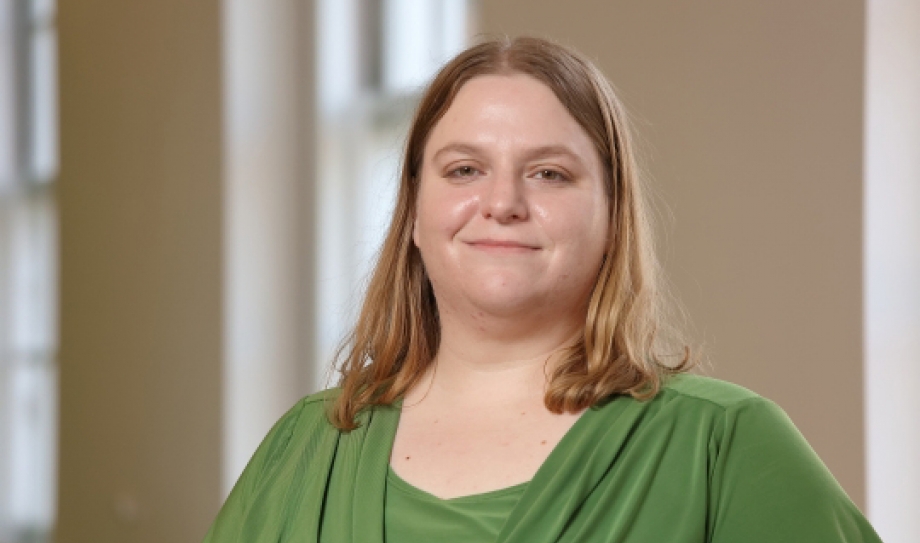
Tell us about your educational career thus far.
I received a B.S. in psychology from Worcester State University in 2012 and M.A. in clinical counseling psychology from Assumption College in 2014. After graduation, I served as a clinician working with individuals to help them achieve their goals, improve communication and manage mental health symptoms. In 2017 I started a computer science bachelor’s degree at University of Maine.
What attracted you to the UVA Engineering National Science Foundation Research Traineeship program?
While taking computer science courses, I realized these skills could be utilized to develop programs that would be beneficial in the mental health care field. For example, applications that reduced waiting times, offered automated assistance or reminded patients of medications they should be taking. In order to create the mental health assistant I was envisioning, I needed experience with autonomous systems. The National Science Foundation Research Traineeship program includes courses in artificial intelligence, embedded sensor technology and diagnostic algorithms, the additional skills I sought.
Link Lab research areas are autonomous systems, smart and connected health and smart cities. What area of cyber physical systems is of greatest interest to you?
My planned area of research will be in smart and connected health. Specifically, I want to create an artificial assistant that aids patients in detecting and managing their mental health symptoms, including individuals with dementia and those with limited access to in-person assistance. My envisioned assistant will use algorithms to determine the risk of symptom onset — such as a depressive episode — and then alert the patient to the presence of those symptoms. It will provide an automated assistance component for helping patients remember coping skills and relapse prevention plans. It will also include built-in, standard-of-care features, like medication reminders.
What aspect of the program do you think will be most valuable to you in your future research and career?
The emphasis on diversity, along with opportunities for networking and professional development, have been incredibly valuable. I anticipate that value will increase over time. I participate in discussions around ethics, policy, and potential risks of cyber-physical systems that incorporate a variety of backgrounds and influences. These are all ideas that I would not be exposed to outside of this program. This approach to curriculum creates a real-world context in which to research smart health care systems as well as their future implications.
Kay Hutchinson
Electrical Engineering
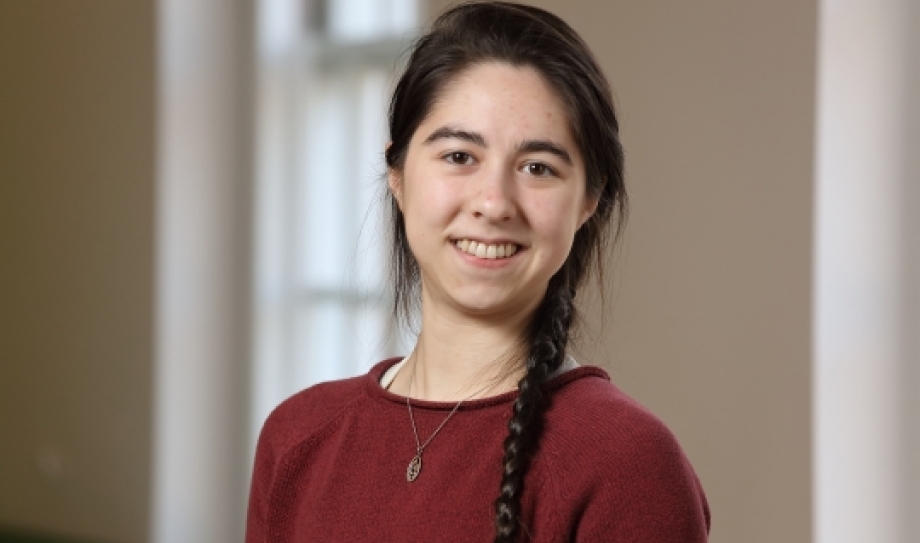
Tell us about your educational career thus far.
I graduated from UVA in December 2018 with a major in electrical engineering and a minor in physics. I am pursuing a Ph.D. in electrical engineering with a research focus of surgical robotics.
What attracted you to the UVA Engineering National Science Foundation Research Traineeship program?
The cyber-physical systems focus, interdisciplinary collaboration, and opportunities for academic and professional development are all characteristics that attracted me to the National Science Foundation Research Traineeship program. UVA offers a unique environment in which to study the interfaces between the cyber and physical worlds in project-based classes, and I'm excited about gaining hands-on experience with machine learning and autonomous systems.
Link Lab research areas are autonomous systems, smart and connected health and smart cities. What area of cyber physical systems is of greatest interest to you?
My current area of research is in automating the endoscopic camera of a surgical robot to allow faster and safer surgeries. This fits into the autonomous systems area of cyber-physical systems, with ties to smart health, both aimed at improving the quality of health care.
What aspect of the program do you think will be most valuable to you in your future research and career?
The most valuable aspects of the program to me are the opportunities for building leadership and communication skills. I also value opportunities to collaborate with people from different backgrounds and specialties while conducting cutting-edge research in autonomous systems, machine learning, and the internet of things. A background in cyber-physical systems topics will be a tremendous influence on my future research projects and career.
Lauren Bouchard
Mechanical and Aerospace Engineering
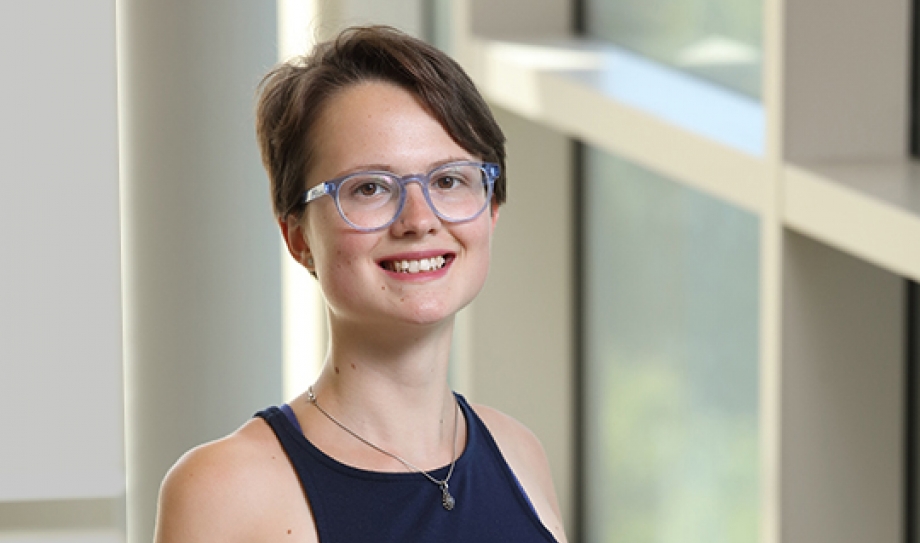
Tell us about your educational career thus far.
I received a B.S. in engineering science from Smith College in 2018. Having completed classes in a variety of engineering topics, I graduated with a strong interdisciplinary background. I also participated in the National Science Foundation Research Experiences for Undergraduates. The program allowed me to participate in fluids research during summer breaks.
What attracted you to the UVA Engineering National Science Foundation Research Traineeship program?
Cyber-physical systems cut across multiple disciplines, so I was drawn to the interdisciplinary curriculum of the National Science Foundation Research Traineeship program. The focus on cyber-physical systems research was also interesting to me since new and innovative engineering tends to incorporate cyber-physical systems concepts.
Link Lab research areas are autonomous systems, smart and connected health and smart cities. What area of cyber-physical systems is of greatest interest to you?
I am most interested in autonomous systems. My research focuses on understanding the flow surrounding unmanned aerial vehicle rotors in different conditions, for example when close to a ceiling surface. That knowledge will lead to development of new control techniques that could provide unmanned aerial vehicles more spatial awareness.
What aspect of the program do you think will be most valuable to you in your future research and career?
I think the connections I will make with both peers and the faculty will be extremely valuable. The program and curriculum at UVA Engineering allows me to meet experts across many disciplines of engineering, and this is different than most traditional mechanical and aerospace programs.
Kayla Boggess
Computer Science
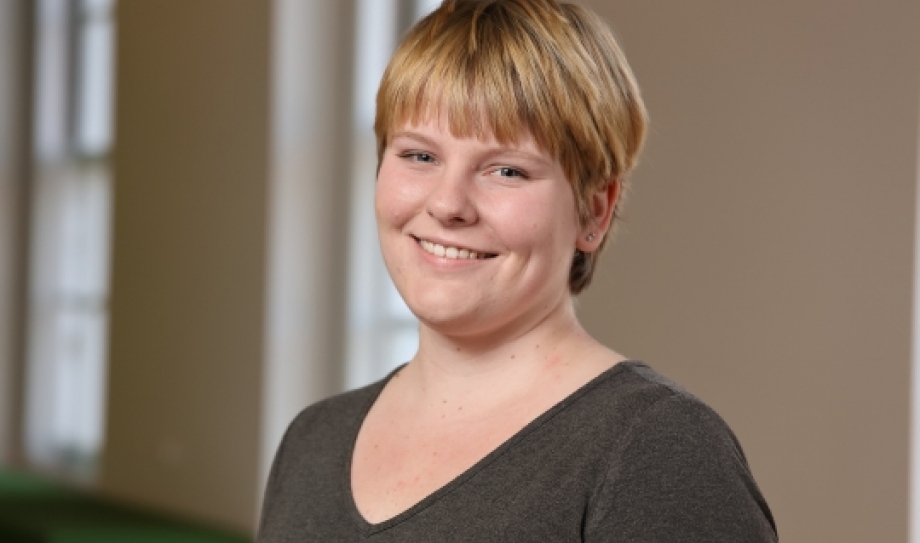
Tell us about your educational career thus far.
I received a bachelor’s degree in computer science and English literature from Denison University, a private liberal arts college in Granville, Ohio. I graduated both a Department of Computer Science fellow and member of Phi Beta Kappa. After graduation, I spent close to a year working in technology for the state of West Virginia. In that role, I helped develop the database that West Virginia’s biologists use to track distribution of rattlesnakes. I also helped develop West Virginia’s online real estate resource.
What attracted you to the UVA Engineering National Science Foundation Research Traineeship program?
I felt that this program was a good academic fit and that it would offer me opportunities I had not previously had. I liked that there was a focus in an area of engineering that interested me and that I would be able to work with others from various departments instead of just my own.
Link Lab research areas are autonomous systems, smart and connected health and smart cities. What area of cyber-physical systems is of greatest interest to you?
I entered the program wanting to work in smart health. However, during the course of my studies, my interest extended into the broader research area of autonomous systems. I am focusing on safety, security and user trust in autonomous systems using formal methods and user interaction practices.
What aspect of the program do you think will be most valuable to you in your future research and career?
The program will not only provide me with the technical skills but also the communication skills that I need to effectively implement cyber-physical engineering solutions. I believe the communication curriculum is equally as important as the technical curriculum.